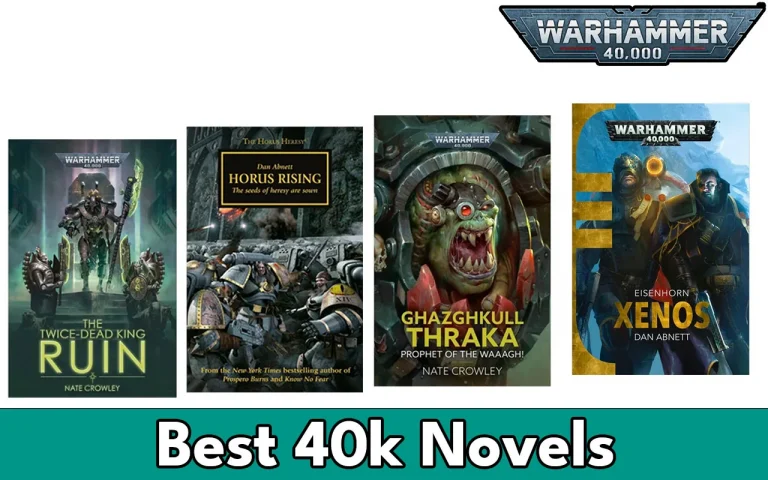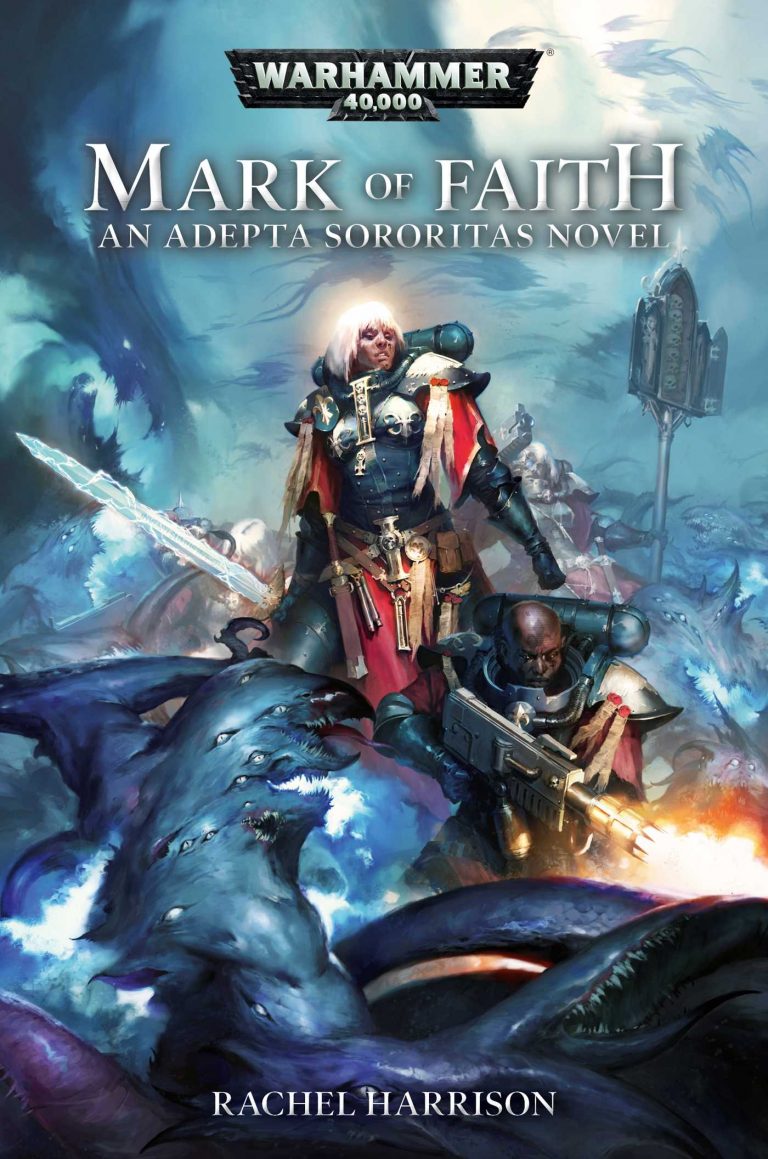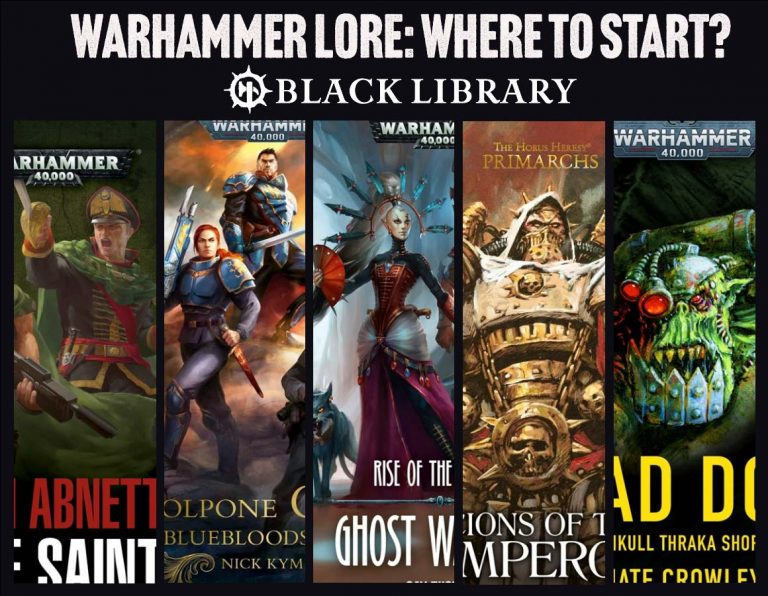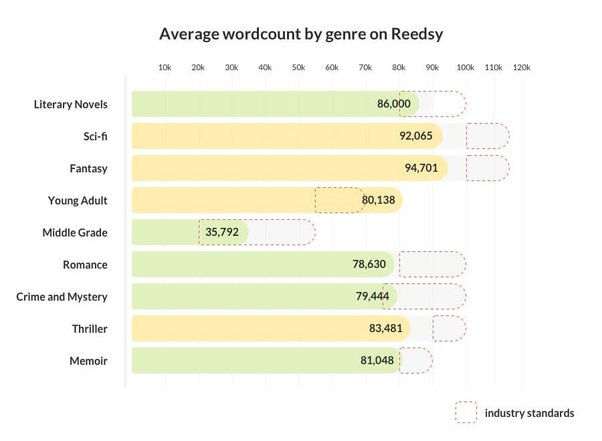Is Warhammer Older Than D&D?
If you’ve ever delved into the realm of tabletop gaming, you’ve probably come across the names Warhammer and Dungeons & Dragons (D&D). These two iconic franchises have captivated the imaginations of countless gamers for decades. But have you ever wondered which one came first? Is Warhammer older than D&D? Let’s dive into the fascinating history of these games and find out!
In the realm of tabletop gaming, Warhammer and D&D are like the wise elders, each with their own unique story to tell. While D&D is widely regarded as one of the pioneers of the role-playing game genre, Warhammer has its roots in the world of miniature wargaming. But which one has been around longer? The answer may surprise you! So grab your dice and join me on this journey through time as we uncover the truth about the age-old question: Is Warhammer older than D&D?
Warhammer and Dungeons & Dragons (D&D) are both popular tabletop role-playing games, but Warhammer is not older than D&D. D&D was first published in 1974, while Warhammer was created in 1983. Both games have their own unique settings and mechanics, appealing to different types of players. Whether you prefer the fantasy world of D&D or the grimdark universe of Warhammer, both games offer exciting and immersive gaming experiences.

Is Warhammer Older than D&D?
Warhammer and Dungeons & Dragons (D&D) are two of the most popular tabletop role-playing games in the world. Both have amassed large fan bases and have had a significant impact on the gaming industry. However, when it comes to their origins, there is a clear distinction in terms of age.
The Birth of Warhammer
Warhammer, created by Games Workshop, was first released in 1983. The game was set in a dark and gritty fantasy world where players could take on the roles of warriors, wizards, and various other characters. Warhammer quickly gained popularity for its immersive gameplay and intricate lore.
The development of Warhammer can be traced back to a miniatures game called “Warhammer Fantasy Battle,” which was released by Games Workshop in 1983. This game allowed players to use miniature models to simulate battles in a fantasy setting. Over time, Warhammer expanded to include a rich narrative and a dedicated player community.
The Origins of D&D
Dungeons & Dragons, on the other hand, has a longer history. It was first published in 1974 by Gary Gygax and Dave Arneson, the founders of TSR, Inc. The game was revolutionary for its time, introducing the concept of a role-playing game where players could create their own characters and embark on epic adventures.
D&D drew inspiration from various sources, including fantasy literature, mythology, and wargaming. The game allowed players to explore vast dungeons, encounter mythical creatures, and engage in epic battles. It quickly became a cultural phenomenon and laid the foundation for the entire tabletop role-playing game genre.
The Impact of Warhammer and D&D
Both Warhammer and D&D have had a significant impact on the gaming industry. Warhammer introduced innovative mechanics and storytelling elements that have influenced countless games and genres. Its detailed miniatures and immersive setting have also made it a popular choice for hobbyists and collectors.
D&D, on the other hand, revolutionized the way people play and think about games. It introduced the concept of collaborative storytelling, where players could create their own narratives and shape the outcome of their adventures. D&D’s influence can be seen in video games, literature, and even popular culture.
Warhammer vs. D&D: A Comparison
While Warhammer and D&D share similarities as tabletop role-playing games, they also have distinct differences. Here are some points of comparison between the two:
1. Setting: Warhammer is set in a dark and gritty fantasy world, while D&D offers a wide range of settings, including high fantasy, science fiction, and modern-day.
2. Gameplay: Warhammer focuses more on strategic battles and tactical decision-making, while D&D places greater emphasis on storytelling and character development.
3. Lore: Warhammer has an extensive and detailed lore, with multiple factions and intricate political dynamics. D&D offers a flexible framework for creating unique stories and settings.
4. Miniatures: Warhammer is known for its highly detailed and collectible miniatures, which are often used in gameplay. D&D does not require the use of miniatures, although many players enjoy using them for visual representation.
In conclusion, while Warhammer and D&D are both beloved tabletop role-playing games, Warhammer is younger than D&D. Warhammer was first released in 1983, while D&D was published in 1974. Despite their age difference, both games continue to captivate players around the world with their immersive gameplay and rich storytelling.
Key Takeaways: Is Warhammer older than D&D?
- Warhammer was created in 1983, while D&D (Dungeons & Dragons) was created in 1974.
- So, D&D is actually older than Warhammer.
- Both Warhammer and D&D are popular tabletop role-playing games.
- Warhammer is known for its dark fantasy setting and miniature models, while D&D is more focused on traditional fantasy.
- Both games have a dedicated fanbase and continue to be played and enjoyed by people all over the world.
Frequently Asked Questions:
1. What is the history of Warhammer and Dungeons & Dragons (D&D)?
Warhammer and Dungeons & Dragons (D&D) are both iconic tabletop role-playing games with rich histories.
Warhammer was first created in 1983 by Games Workshop, a British gaming company. It is set in a dark and gritty fantasy world and has since expanded into various editions and spin-offs, including Warhammer 40,000.
Dungeons & Dragons (D&D), on the other hand, has a longer history. It was first published in 1974 by TSR, a company founded by Gary Gygax and Dave Arneson. D&D takes players on epic adventures in a fantasy world of their own creation, and it has gone through several editions and revisions over the years.
2. Which game came first: Warhammer or Dungeons & Dragons?
Dungeons & Dragons (D&D) was created before Warhammer. The first edition of D&D was published in 1974, while Warhammer was introduced in 1983.
However, it is important to note that while D&D came first, Warhammer has still had a significant impact on the tabletop gaming industry and has garnered a dedicated fan base over the years.
3. How have Warhammer and D&D influenced each other?
Warhammer and Dungeons & Dragons (D&D) have influenced each other in various ways throughout their histories.
Warhammer drew inspiration from D&D’s success and popularity, incorporating elements of fantasy role-playing games into its own unique setting. Additionally, Games Workshop, the creators of Warhammer, released several supplements and expansions that were compatible with the third edition of D&D, further bridging the gap between the two game systems.
On the other hand, D&D has also been influenced by Warhammer. The success of Warhammer’s miniature-based gameplay and its immersive world-building inspired D&D to introduce more tactical combat elements and expand its lore and setting options.
4. Which game is more popular: Warhammer or Dungeons & Dragons?
Both Warhammer and Dungeons & Dragons (D&D) have large and dedicated fan bases, making it difficult to determine which game is more popular.
D&D has been around for a longer time and has had a broader impact on the gaming industry as a whole. It is often considered the quintessential tabletop role-playing game and has influenced countless other games and media.
However, Warhammer has also gained a significant following, especially among fans of dark and gritty fantasy settings and miniature-based gameplay. It has its own unique appeal and has expanded into various mediums, including video games and novels.
5. Can you play both Warhammer and Dungeons & Dragons?
Absolutely! Many tabletop gaming enthusiasts enjoy playing both Warhammer and Dungeons & Dragons (D&D). While they have different gameplay mechanics and settings, both games offer immersive and engaging experiences.
Warhammer focuses more on miniature-based combat and strategic gameplay, where players control armies and engage in battles. D&D, on the other hand, emphasizes storytelling and role-playing, allowing players to create and develop unique characters in a fantasy world.
Whether you prefer the tactical nature of Warhammer or the imaginative storytelling of D&D, both games offer endless hours of fun and entertainment.
Starting a 40k army older than I am: why modern 40k don’t interest me
Final Summary: Is Warhammer Older Than D&D?
After delving into the history of two iconic tabletop role-playing games, Warhammer and Dungeons & Dragons (D&D), it’s clear that Warhammer is indeed older than D&D. While both games have left an indelible mark on the gaming world, Warhammer emerged onto the scene in 1983, a few years prior to the release of the first edition of D&D’s Player’s Handbook in 1978. This discovery sheds light on the rich heritage of Warhammer and its influence on the fantasy genre.
Warhammer’s origins date back to the 1970s when its creator, Rick Priestley, began developing a unique gaming system with intricate rules and a captivating dark fantasy setting. Over the years, Warhammer has evolved and expanded, captivating legions of fans with its immersive lore, intricate miniatures, and strategic gameplay. Its longevity and enduring popularity are a testament to its impact on the gaming community.
While D&D may have gained widespread fame and recognition, it’s important to recognize the trailblazing role of Warhammer in shaping the tabletop gaming landscape. Both games have their own unique appeal, offering different experiences to players. Whether you’re a fan of the grim and gritty world of Warhammer or the classic high fantasy of D&D, there’s no denying the significant contributions of both games to the realm of tabletop role-playing.
In conclusion, while the debate may persist, the historical records speak for themselves. Warhammer predates D&D, establishing its place as one of the forefathers of the genre. So, whether you’re a seasoned gamer or a curious newcomer, both Warhammer and D&D offer endless adventures and opportunities for imagination. Embrace the fantastical worlds they provide, and let the dice roll in your favor as you embark on epic quests with friends and fellow adventurers. May your gaming journeys be filled with excitement and wonder!






